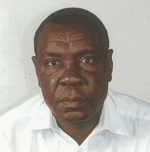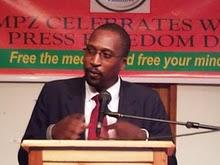Cote d’Ivoire’s delicate stalemate

Kenya PM Raila Odinga meets Laurent Gbagbo to discuss solutions to Cote d’Ivoire’s political paralysis
In Tunisia, street protests; in Ivory Coast, a call for a general strike meets limited success. In one country, a long-time president leaves power, in the other he’s holding on…for now.
Laurent Gbagbo became president in 2000 on the back of a popular street movement after disputed elections. At the moment it seems unlikely that he’ll leave in the same way. The lack of a popular outcry after his widely-recognised election defeat (by more than eight percentage points) to opposition politician Alassane Ouattara has certainly helped strengthen his hand and confounded those hoping for an Ivorian solution to an Ivorian crisis.
It probably comes down to a number of factors; bloody crackdowns on what protests there have been, a widespread fatigue after ten years of crisis, the concentration of Gbagbo support in Abidjan – the country’s only major city – and the incumbent’s control of the state propaganda machine.
So, what next? Gbagbo has publicly said that talk of a military intervention to oust him makes no sense when you study the African political map and ask how many decent elections actually take place. You’d have to intervene in almost every country he says. So why are the Ivory Coast elections causing such a stir? While other elections have certainly been worse and received barely a whisper of criticism, there seems to be a remarkable international will to see the independent election commission’s results respected. Not since the Second World War, one western diplomat told me, had the world been in such strong agreement on one thing.
There were a number of factors that were special about these elections. They were one of the most expensive ever held per voter, coming five years late and billed as the real watershed moment for a country emerging from its worst decade since independence. Secondly, the United Nations had a unique role in overseeing and certifying elections, transporting all the results sheets, many of them all the way from the polling stations to Abidjan, and receiving a copy of all the 20,000-plus results sheets. Within several hours of the close of polling, the UN say they knew Ouattara had won.
So why in a nation about to close a chapter on a decade of strife, did Gbagbo apparently fix the verdict in the face of an international community that had the results, and that had been present in large numbers on the ground throughout the country? Partly the international outcry was unexpected; former colonial power France opting for stability and the protection of its own economic interests could have let Gbagbo stay on. The African Union and ECOWAS could have been expected to take sides with one of their own, who has played the imperialists vs. Africa card on a number of occasions over the past ten years. Maybe Gbagbo thought he could escape from the zero of losing an election, to coming out with at least something; a share of government posts, whatever the risk to the country’s stability.
Two recent developments on the continent have influenced the crisis; the rise of international law and post-election power-sharing. On the latter, Gbagbo thought mediators would offer him some sort of deal in which he stayed on as president, while Ouattara would be prime minister or vice-president. Unfortunately for him, the African Union sent the Kenyan Prime Minister Raila Odinga to mediate; a man with personal experience of such a deal and who immediately dismissed the idea. Secondly there’s the fear that Gbagbo, or at least his more hard-core allies, could face international prosecution for some of the atrocities committed during the Ivorian crisis. Leaving power has become a riskier business in Africa, and Nigeria’s offer to Gbagbo of amnesty and a luxurious exile wasn’t quite as attractive post-Charles Taylor.
Western diplomats say the only way this crisis can end is with Ouattara as president. But can Laurent Gbagbo succeed? Will the world lose interest, fail to back up their words with action and accept a fudge? If this was just about Gbagbo and Ivory Coast that could well be possible. But with around twenty elections in Africa this year, the crisis has become a point of principal; success would establish a roadmap for future election disputes and make other incumbents think twice. Failure would show others that even in the most-supervised, transparent conditions, you can still fix an election, even after the results have been given, and get away with it.
John James is the BBC correspondent in Ivory Coast and studied African Studies at St Antony’s College, Oxford University.
See also
Richard Dowden: Gbagbo’s bloody gamble
An RAS Guide to… Political crisis in Cote d’Ivoire







“The lack of a popular outcry after his widely-recognised election defeat[…]” .
Don’t you think it is a hint that he may enjoy more support from the civilian population than the media would have you believe?
Second, the election results release process was violated in many occasions .
More specifically, the president of the so-called “independent electoral committee” anounced results without letting the other members of the committee validate the results.
This is a fact.
Worse, members of the committee rejected the results he announced. Should I remind you that the independent electoral committee deliberates by consensus?
Moreover, the electoral code was asking for results to be announced three days after the closing of poll stations, at most.
Well the president of the commission announced the results after the 72 hours allotted to him by the code.
Furthermore, after the 72 hours, it is the Ivory Coast Constitutional Court which is mandated to release results.
No matter what the case is, the Constitutional Court is the only institution in Ivory Coast mandated by the Constitution to announce definitive results of a presidential election.
That is not all, the Constitutional Court had evidence of grave irregularities in the way the election were conducted in the zones under rebel occupation. They invalidated votes in those regions as permitted by our electoral code and supported by our Constitution.
I put an emphasis on the expression our Constitution.
It is not the UN constitution, nor that of France, even less that of the US.
It is our Constitution. Not yours… Those were our presidential elections, not yours. Gbagbo is president and that’s it… Maybe you should allow Alassane to participate in elections in your country since you love him so much, which kind of worry us if you see what I mean.
.
[…] This post was mentioned on Twitter by SSRC, news4trends.com. news4trends.com said: #politics A delicate stalemate in Cote d'Ivoire – African Arguments http://dlvr.it/FBdG2 […]
Yet another great blog entry, John. I often use this site to help me get a better perspective on a number of issues in Africa. I work for a news company called Think Africa Press, perhaps there may be some articles on there that are of interest to you? For example, here’s a recent response article to the CAR election result http://bit.ly/fOC1rE. Don’t hesitate to get in touch.
What i do not realize is actually how you’re not actually much more well-liked than you might be right now. You’re very intelligent. You realize thus significantly relating to this subject, made me personally consider it from numerous varied angles. Its like women and men aren’t fascinated unless it’s one thing to accomplish with Lady gaga! Your own stuffs excellent. Always maintain it up!
Great post. I was checking continuously this weblog and I am impressed! Very useful information particularly the final phase 🙂 I take care of such information a lot. I was seeking this certain info for a very long time. Thanks and good luck.
Greetings from Florida! I’m bored to death at work so I decided to browse your site on my iphone during lunch break. I love the info you present here and can’t wait to take a look when I get home. I’m amazed at how quick your blog loaded on my mobile .. I’m not even using WIFI, just 3G .. Anyhow, excellent blog!
Thanks for the sensible critique. Me & my neighbor were just preparing to do a little research on this. We got a grab a book from our local library but I think I learned more clear from this post. I’m very glad to see such fantastic info being shared freely out there.
I know this if off topic but I’m looking into starting my own blog and was wondering what all is needed to get set up? I’m assuming having a blog like yours would cost a pretty penny? I’m not very internet smart so I’m not 100 certain. Any recommendations or advice would be greatly appreciated. Cheers
An fascinating dialogue is worth comment. I feel that you should write extra on this matter, it might not be a taboo topic but typically individuals are not sufficient to speak on such topics. To the next. Cheers
This actually answered my problem, thank you!
This is very interesting, You are a very skilled blogger. I have joined your feed and look forward to seeking more of your great post. Also, I have shared your website in my social networks!